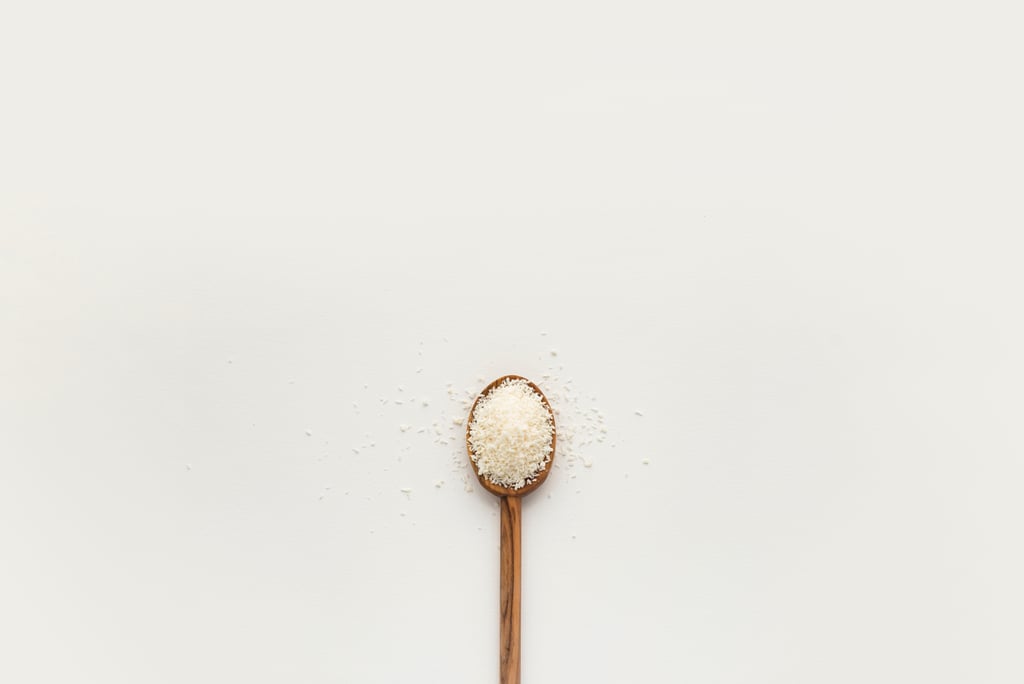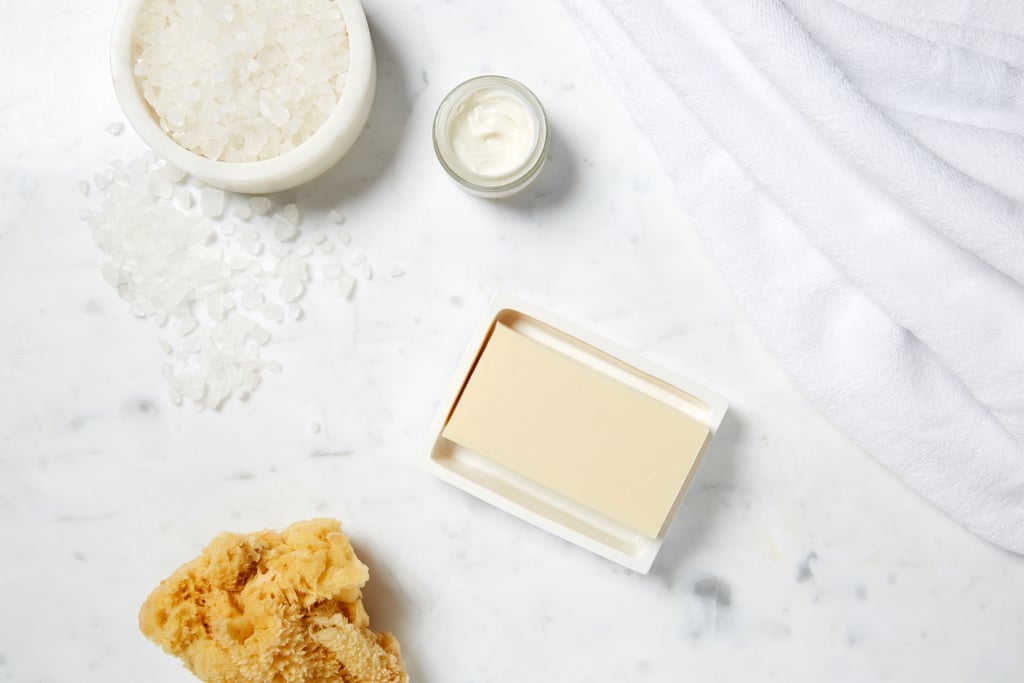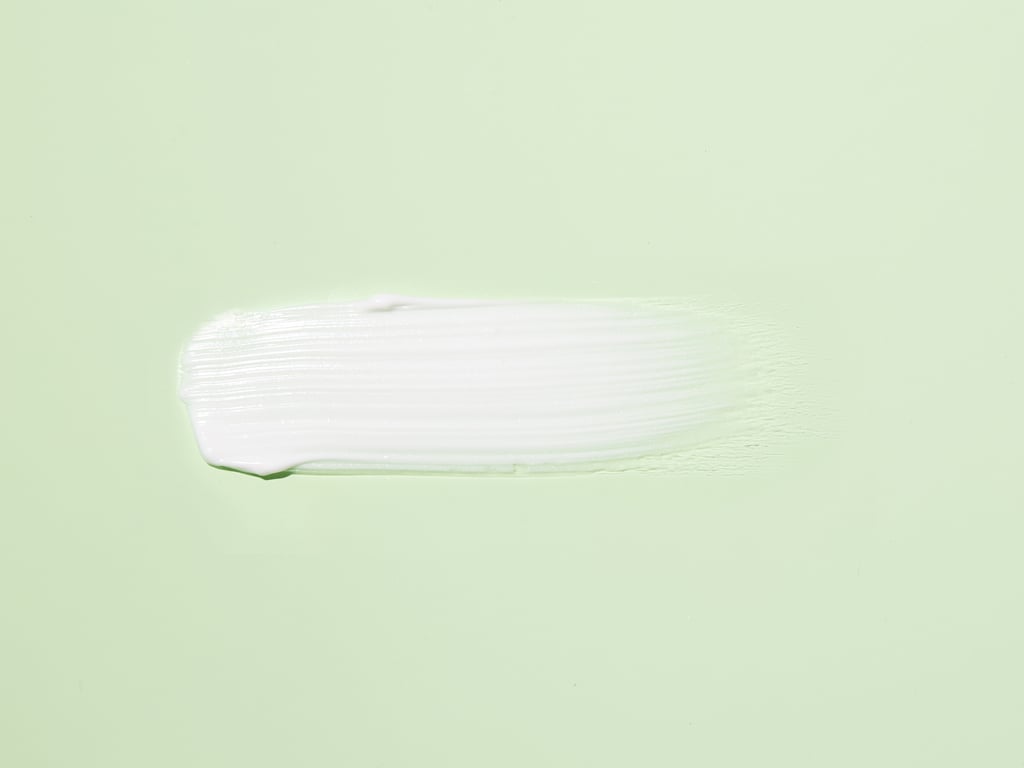My skin has been doused in every type of chemical approved by the FDA for decades. If it'll degunk my pores, lighten my under-eye circles, or zap my zits, I'll pile it on. But every few years, I call for a cleanse. I put all my heavy-duty products in a box, shove it under my sink, and swap in natural, organic skin care. A few weeks ago, I stocked up on one of my favourite organic [1] brands (which shall remain nameless, as it's not relevant to today's investigation) and prepared for a month of clean living. Ten days later, my chin was dotted with tiny, angry bumps that lasted several weeks, until I tweaked my regimen.
Why had the skincare gods forsaken me? It had been years since my cystic acne [2] was banished by a five-month supply of Accutane [3], and I rarely experienced any annoying, surface-level zits. It wasn't "that time of the month," nor had my diet changed dramatically. No late-night ice cream binges, and my water intake was steady. Could it be the organic products? Had my skin become so dependent on chemicals that the natural cleanser didn't make an impact? Was my skin purging [4], the way it does after an intense facial brings everything to the surface?
I consulted two dermatologists to find out what could have happened.
What Does "Organic" Really Mean?
While many products labeled "natural" may play fast and loose [5] with their ingredient lists, brands need to follow guidelines set by the National Organic Program [6] — which falls under the umbrella of the United States Department of Agriculture (USDA) — if they want to claim a product is certified organic. Products with the official organic seal must be at least 95 percent composed of ingredients that were farmed or formulated without chemicals, herbicides, or pesticides. It's a lengthy process to achieve this certification, so it's a pretty big deal. If your bottle comes with that seal, you can rest assured the contents are free of any controversial ingredients.
Organic Skin Care and Acne
"Acne flares occur for a variety of reasons, including what you put on your face as well as what is going on inside your body," said Joshua Zeichner, MD [7], of Zeichner Dermatology. "Skincare products that contain heavy oils, including some that may be found in organic skincare products, may promote breakouts. Just because the product is labeled as 'organic' does not mean that it won't cause pimples."
As it turns out, there's no one-size-fits-all skincare routine, even when it comes to organic products.
"Just as not all skin types are alike, not all 'natural' ingredients are beneficial for the skin or interact with your skin the same way," said Patricia Ceballos, MD [8], from Schweiger Dermatology Group. "There are natural ingredients in modern-day products which can cause new acne breakouts or exacerbate acne-prone skin."
Ceballos named three ingredients that have been known to cause "unsolicited" acne [9]:
- Coconut oil, which can clog pores.
- Willow bark extract, commonly included in products as an exfoliating agent.
- Clay (including benonite clay), an ingredient that works to unmask clogged pores.
None of these appear on the list of key ingredients in the products I used, so the mystery thickened.
The Problem
"It is noteworthy that many natural or organic compounds on the market lack the preservatives protecting against bacterial or fungal overgrowth or contamination," Ceballos said. "This alone could lead to skin problems. If your skin is not prone to acne lesions and you develop acne while on a product, whether natural or 'synthetic,' then the product itself is the likely culprit."
In layman's terms: it's possible my skin just didn't like one or more of the products [10]. I also asked about my hypothesis that my skin had become used to harsh ingredients and now treating my pores with organic products did little more than splashing my face with water.
"If you are regularly using an acne treatment product, then you switch to an organic product that does not have any acne benefits, you may break out," Zeichner explained. "For example, if you are using a salicylic acid cleanser [11] to keep the pores clear, then stop, your face may flare. It's not so much that the skin is dependent on the products, but rather that the products are addressing underlying skin issues and keeping them in check."
Bingo.
The Fix
Previous to my month-long experiment, I had been using a toner that contained salicylic acid. My new routine meant my skin was no longer getting that important daily dose, which had likely been keeping those pesky bumps at bay for years. As I learned, it wasn't the presence of organic ingredients that had started causing breakouts, it was the sudden absence of the salicylic acid. Thus, I started using my regular face wash again, and my pimples became a problem of the past.
While some natural ingredients can cause breakouts (see list above), Ceballos said there are those too that can alleviate inflammation: aloe vera, green tea extract, and sulfur. If you do want to stick with the natural path, stock up on products that contain some of those calming ingredients. "No matter what type of product you're using, be sure that it is labeled as noncomedogenic, meaning that it doesn't block your pores," Zeichner added.
Both experts stressed the importance of checking with your own dermatologist before launching into unknown "natural" territory.



